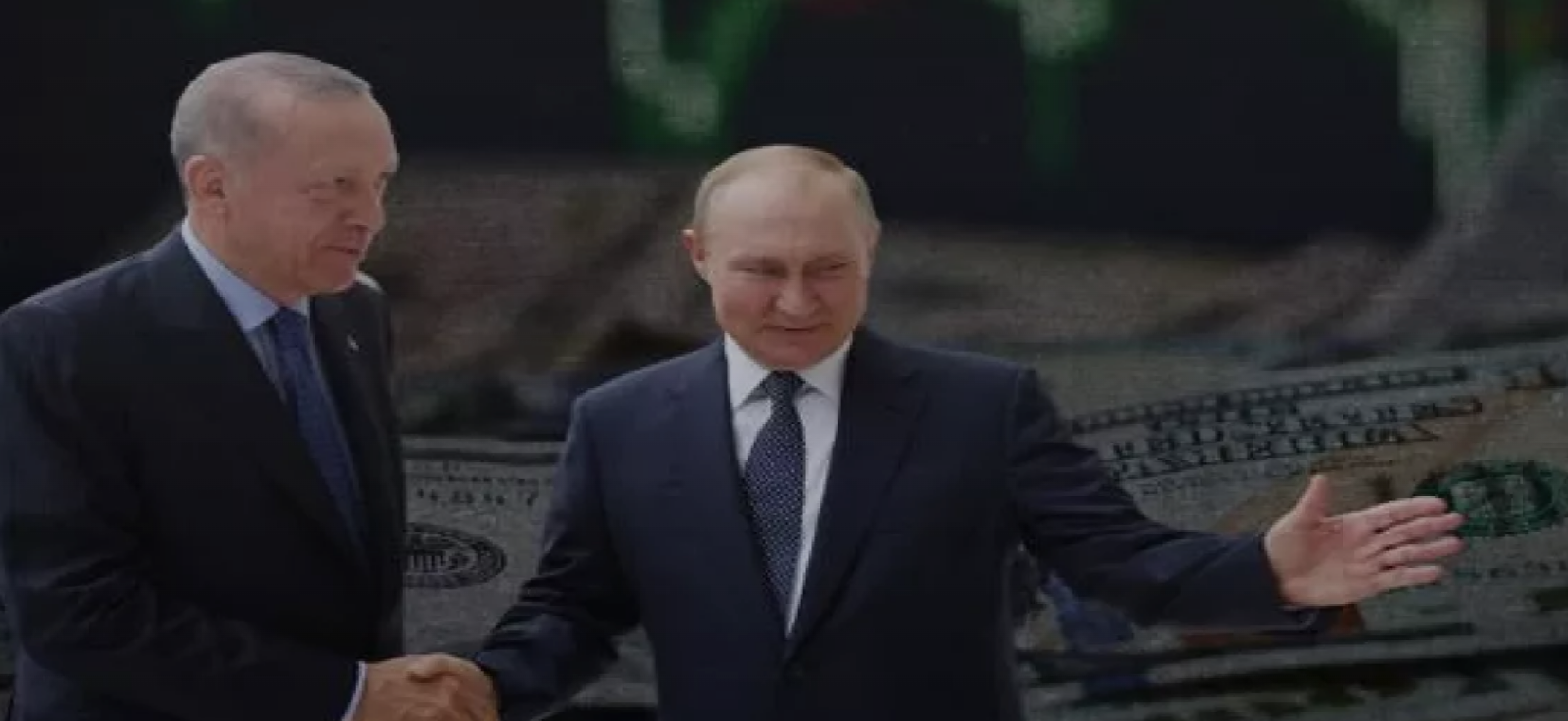Recep Tayyip Erdogan is getting a boost from Russia’s Vladimir Putin at a crucial time for Turkey’s powerful president.
Erdogan’s four-hour meeting with Putin in Sochi last week resulted in an understanding that allows Turkey to ditch dollars for some of its imports.
That’s a huge boon for the Turkish leader. With less than a year left before general elections and his approval ratings hovering near record lows, Erdogan needs to stabilize Turkey’s economy after his ultra-loose monetary policy left the currency unanchored.
The lira’s decline — it’s down by more than a half from a year earlier — is raising the cost of everything from food to energy and services and has pushed consumer price inflation to 80%, one of the world’s highest.
Analysts warn the currency might be facing even more headwinds toward the end of this year as the Turkish Treasury and companies need to roll over dollar debt while tourism income begins a seasonal decline.
With oil at current prices, Turkey’s energy imports could reach $70 billion, or roughly three times as much as the country spent on oil and gas last year.
Paying Russia in rubles for some of the imported gas provides a relief for Turkish policy makers to keep the lira stabilized and prevent another wave of price hikes before next year’s elections.
And it comes shortly after Turkey’s foreign reserves already got a boost from a money transfer by Russian state nuclear operator Rosatom to its Turkey-based subsidiary for construction of a power plant on the Mediterranean coast.
But Erdogan is walking a fine line.
Like other members of the North Atlantic Treaty Organization, Turkey remains opposed to the Russian invasion of Ukraine and sent weapons including highly effective drones to the government in Kyiv to help counter Putin’s army.
At the same time, Turkey has refrained from joining US and European sanctions on Russia over the war.
The Turkish leader wants to deepen economic ties with Russia at a time when Western companies are forced to leave without provoking a full-blown rupture with traditional NATO allies.
Bloomberg
